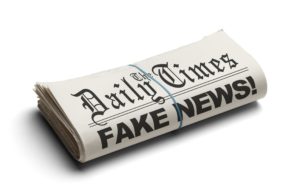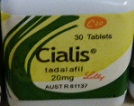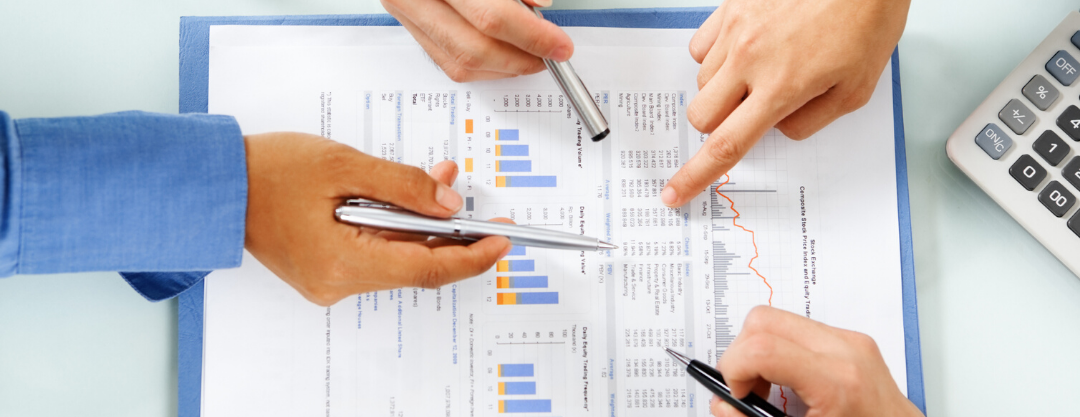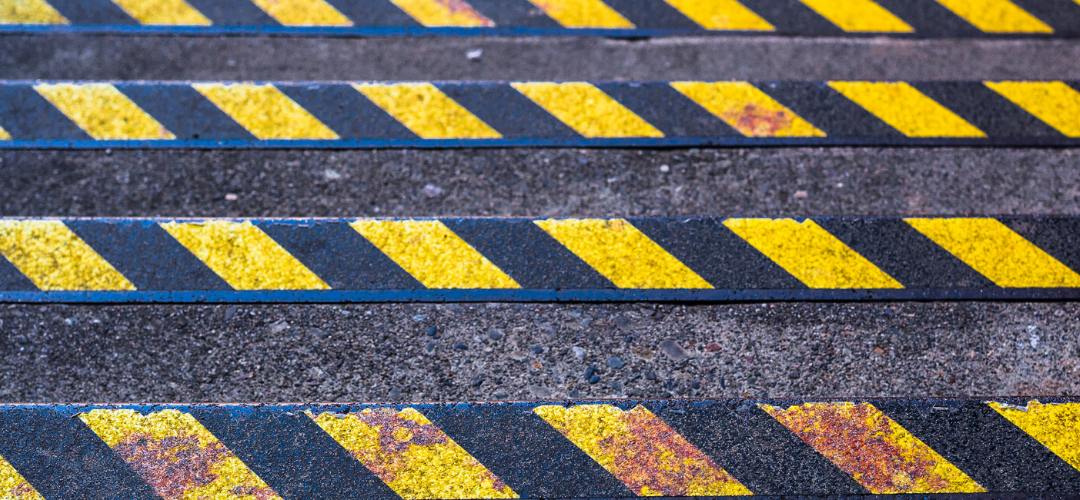by Gabriel Levitt, President, PharmacyChecker.com and Prescription Justice | Jul 10, 2020 | Counterfeit Drugs
I have written extensively about how the pharmaceutical industry and its allies deceive the public by conflating the issue of counterfeit drugs with safe, more affordable prescription medicines that Americans purchase online and import for personal use. One of the industry’s main tactics is to make the counterfeit drug problem look as big as possible. They then falsely connect it to Americans buying legitimate meds online and as an excuse to oppose prescription drug importation in general. They do this through industry-funded groups and researchers.
A non-profit organization, funded by drug company Eli Lilly and other industry sources, called the Alliance for Safe Online Pharmacies (ASOP) has a page called “The Global Fight Against Illegal Online Pharmacies and Counterfeit Medicines.” It states: “Worth $200 billion a year, the market for counterfeit pharmaceuticals now eclipses almost everything in the underground economy, including prostitution, human trafficking and illegal arms sales.” On that same page, it goes on to report how ASOP is educating the public about “Canadian online pharmacies and drug importation” and “how the legalization of importation of prescription drugs from Canada and other foreign countries would endanger consumers by threatening the protections provided by the Drug Supply Chain Security Act of 2013.”
Where did that number, $200 billion come from?
It’s a vicious circle of seemed “authority.” Basically, a statistic appears in a seemingly authoritative article or even scholarly report. A citation appears with that statistic, but it is rarely checked or questioned because the authority is trustworthy enough. Then, the media sees that statistic and regurgitates it over and over and over again. In the case of this $200 billion figure, the story is no different.
(more…)
by Gabriel Levitt, President, PharmacyChecker.com and Prescription Justice | Apr 23, 2020 | Counterfeit Drugs
Sad as it may be, it should not surprise anyone that hucksters are peddling coronavirus quackery on the Internet related to the treatment of Covid-19. Whether it be through marketing a fake test, medical advice or shoddy personal protective equipment, bad people are trying to profit off this crisis. Recent research shows that rogue websites are selling fake chloroquine phosphate or hydroxychloroquine, taking advantage of the promotion of these antimalarials as possible treatments for the novel coronavirus.
A few weeks back, there were huge spikes in the number of people seeking out these drugs online. We know because of the increased traffic to drug price pages for chloroquine phosphate and hydroxychloroquine on PharmacyChecker.com. Rogue websites market these drugs without requiring a prescription. When it comes to PharmacyChecker-accredited online pharmacies, consumers cannot just self-prescribe; they must provide a valid prescription.
(more…)Tagged with: chloroquine, coronavirus, covid-19, hydroxychloroquine
by Gabriel Levitt, President, PharmacyChecker.com and Prescription Justice | Jan 6, 2017 | Counterfeit Drugs, Online Pharmacies, Pharmaceutical Industry

It’s time to get real
In 2005, as reported here, an executive from the Pharmaceutical Researchers and Manufacturers of America (PhRMA or Big Pharma), agreed to commission, to the tune of $300,000, the writing of a fictional novel in which Muslim terrorists poison prescription drugs in Canada to kill Americans who – seeking affordable medication – buy drugs from Canada. The deal with the publisher didn’t work out. As the authors tell it, PhRMA offered money to shut them up but they said no. They instead wrote a book about a pharmaceutical company who poisoned Canadian drugs and made it look like Muslim terrorists did it. Nope, I couldn’t make this up. That book – The Karasik Conspiracy – is available on Amazon.
Fake news is in the news a lot lately! Like fake news, efforts to dissuade Americans from obtaining safe lower cost medication through personal drug importation can have dangerous consequences: people scared away from safe medication they can afford. There are – in fact – very safe international online pharmacies and dangerous rogue pharmacy sites. Stick to the former avoid the latter. There are tens of millions of Americans not taking medications because of cost — so it’s time to get real. (more…)
Tagged with: AEI, fake news, medscape, Roger Bate, webmd, who
by Gabriel Levitt, President, PharmacyChecker.com and Prescription Justice | Aug 12, 2015 | Advocacy, Cancer Drugs, Counterfeit Drugs, Drug Importation, FDA, Government, Personal Drug Importation
Almost three years ago, we blogged about a federal investigation of CanadaDrugs.com, which for many years has safely sold prescription medication at prices far lower than typically available in the U.S, and which is a verified online pharmacy in the PharmacyChecker.com Verification Program. The investigation focused on CanadaDrugs.com’s wholesale drug importation and distribution to doctors and clinics — an area CanadaDrugs.com has long since exited. It did not focus on CanadaDrugs.com’s retail sales to consumers for personal use, which is the focus of the PharmacyChecker.com Verification Program and the information we provide to consumers on our website about online pharmacies.
Recently, an indictment was unsealed in federal district court in Montana that charged CanadaDrugs.com, Ltd. (the entity which owns CanadaDrugs.com) and others with illegal wholesale drug importation, which allegedly occurred between three to six years ago. The allegations include wholesale distribution of a counterfeit version of the cancer drug Avastin to medical clinics in the U.S.
The indictment of CanadaDrugs, Ltd, comes as no surprise, as the investigation was well publicized. It will also come as no surprise, however, when the U.S. pharmaceutical industry tries to use the charges, which focus exclusively on wholesale drug importation, in an effort to discredit safe personal drug importation. As we have written here and opined in the New York Times, the U.S. pharmaceutical industry and pharmacy chains feel threatened because Americans can and do safely purchase their medications online at substantially lower cost from pharmacies in other countries. Thus, the industry, the “non-profit” groups it funds, and the government agencies which it lobbies and seeks to influence, will see this indictment as yet one more opportunity to scare people from personal drug importation. This slight of hand is wrong, since the investigation and indictment have nothing to do with personal drug importation. In fact, even the Wall Street Journal, which was instrumental in publicizing the investigation, clarified the difference between wholesale businesses and CanadaDrugs.com: “There is no indication that fake medicines were sold through the company’s consumer-focused website, CanadaDrugs.com.”
(more…)
Tagged with: avastin, canadadrugs, kamath, montana
by Gabriel Levitt, President, PharmacyChecker.com and Prescription Justice | May 22, 2015 | Counterfeit Drugs, Drug Safety, FDA, Personal Drug Importation
A story last Friday on ABC News’s 20/20 featured the topic of counterfeit drugs, their dangers and where they’re being sold. The story was helpful in educating the public about the threat of counterfeit drugs but it really seemed to play along with a misleading narrative, one propagated by the drug companies, that foreign medications are the same as counterfeit drugs. I’ve debunked this nonsense before: affordable and safe medications sold from foreign pharmacies are not the same as counterfeit drugs.
Also, as part of its feature on counterfeits, ABC’s website has a section called “How to Order Prescription Drugs Safely Online” that looks to the Alliance for Safe Online Pharmacies (ASOP) for useful consumer information. ASOP is financed and operated by big corporate pharmaceutical interests that oppose personal drug importation from safe online pharmacies. If you have great health insurance that covers all of your medications, or lots of money to cover exceedingly high out of pocket prescription drug costs, then the recommendations of ASOP might work for you because they recommend big U.S. chain pharmacies, such as Walgreens and CVS, which charge the world’s highest prices for medication. Many other Americans actually NEED safe international online pharmacies, which ASOP would call unapproved or even “rogue.”
It its story, ABC investigative journalists tracked down people selling prescription medications on the street, from push carts, even in clothing stores – usually in relatively poor neighborhoods. Eventually those people were arrested, all for the viewing audience to see. According to the federal agents involved, some of the medications seized were counterfeit and people did not have to provide a prescription to buy prescription drugs. The story was very troubling. Indeed, it was a powerful indictment of our society, one in which drug prices are so outrageously high that people, such as undocumented immigrants without health insurance, look to street peddlers to find affordable medication.
ABC also covered what are known as “Storefront” pharmacies, which are located throughout the country, often in strip malls, where people go to buy medications from pharmacies in other countries by mail order. These storefronts usually have titles that include the words “Canada,” or “Canadian,” and “Drugs,” “meds,” “medicine,” “Rx,” etc., which indicate that a person can acquire medicine from Canada. ABC wanted to highlight that the medications ordered at these places often do not come from Canadian pharmacies but from other countries. ABC’s implication is that people are being misled. On the other hand, when watching the show, it appeared that storefront personnel did communicate that the orders would not come from Canada so I’m not clear on what’s going on here. We wrote a piece about online pharmacies related to this issue: “So You Want to Buy Cheap Medicine from an Actual Canadian Pharmacy. Here’s the Deal.”
We do not verify storefronts but we believe that some of them are essentially people and companies that help Americans place prescription drug orders from foreign pharmacies that require a valid prescription. In fact, through ABC’s mystery shopping (meaning purchasing prescription drugs from storefronts) they were required to submit valid prescriptions and did so. A few weeks later the journalists received four medications, two of them brand, Viagra and Zocor, coming from Singapore and the UK, and two generics, tadalafil (the brand version known as Cialis) and finasteride (the brand version known as Propecia), both Indian drug products.
The story made it seem as if the two generics were either substandard or counterfeit, as it was noted they contained “impurities” or “unknown ingredients”. What ABC News did not communicate is that the so-called “impurities” or “unknown ingredients” might be acceptable inactive ingredients, excipients, etc., just different from those in the brand versions sold in the U.S. This is normal: generic drugs in the U.S. often have different inactive ingredients from their brand name counterparts. When the Indian generics were chemically tested, ABC showed the results as “fail” but didn’t tell you that generics sold in U.S. pharmacies would likely have failed as well if given that same test because they are not the exact same as the brand in terms of inactive ingredients.
Also, when ABC reported that most of the medicines did not meet FDA standards, it didn’t explain that simply having a label designed for a different country automatically means it does not meet FDA standards, regardless of the medication’s actual safety. In short, foreign sourced medications are often safe and effective products, approved for sale in the countries from which they are dispensed – but not counterfeit or substandard.
It’s important to note that the generics received by the journalists came from India, and, as we’ve written about before, India does have more problems with low quality and counterfeit drugs than in the U.S. or other rich countries. At the same time, India is the largest source of generic medications, exporting across the globe to wealthy, middle income and poor countries. In fact, 40% of generics sold in U.S. pharmacies are from India. It’s well known that the top Indian drug companies excel at making high quality, safe and effective prescription medications, but even among them problems exist, too.
On a closing note about ABC’s coverage of counterfeit drugs, I encourage our readers to look at the consumer comments section on ABC’s website. People don’t believe the big drug company propaganda, or even our trusted regulatory authorities like the FDA. That bothers me because the FDA is right that there are rogue pharmacy operators out there, often online, but they’re wrong not to acknowledge the relative safety and public health benefits of safe international online pharmacies. Hopefully ABC will really investigate…
Tagged with: 20/20, ABC News, Alliance for Safe Online Pharmacies, Storefront
by Gabriel Levitt, President, PharmacyChecker.com and Prescription Justice | Jan 23, 2015 | Counterfeit Drugs, Drug Safety

FDA Seized Counterfeit Cialis at International Mail Facility
The FDA issued a warning about counterfeit Cialis, an erectile dysfunction (ED) medication, being sold through the mail, which probably means it was purchased from a rogue online pharmacy. The fake Cialis is some whacky combination of Cialis’s active ingredient, tadalafil, and the active ingredient in Pfizer’s Viagra, called sildenafil. Apparently, the FDA seized the counterfeit product before it reached a consumer in the U.S. by mail.
Fortunately, over 99% of safe, personally imported prescription drugs are not seized at international mail facilities. Still, I’ve given the FDA considerable grief about seizing safe medications, which they usually deem “misbranded” or “unapproved” for intellectual property or labeling reasons – but in this case FDA protected someone from a bad drug and that’s cool.
According to Reuters, FDA “cautioned against purchasing prescription medicines online, noting that some websites may be selling unsafe products.” The FDA also said that there is no indication that the “legitimate supply chain” – meaning the U.S. domestic supply chain – is at risk and that licensed U.S. pharmacies are safe. That’s probably true but there’s no reason to believe that the legitimate supply chains in other countries aren’t safe either. In other words, foreign online pharmacies verified by PharmacyChecker.com continue to sell real Cialis, the one marketed by Eli Lilly, for a lot less than they do here. The lowest cost Cialis (10mg) is $14.25 at a PharmacyChecker.com-approved international online pharmacy. That compares with a whopping $44.92 per pill at a one of the lower cost VIPPS-approved online pharmacies (VIPPS is the online pharmacy verification program of the National Association of Boards of Pharmacy).
The FDA recommends that consumers do not take Cialis supplied in bottles matching one or more of the following descriptions:
- lists “AUSTR81137” on the front of the bottle;
- does not include an NDC number on the front of the bottle, such as “NDC 0002-4462-30” for the 20 mg tablets;
- does not include the tablet strength in a colored box;
- has different patterns and colors; it has yellow and darker green designs on the front label;
- has misspellings; it lists, “CLALIS is a product of: Eli lilly Australia PTY Limited” on the side of the bottle;
- lists the manufacturer location as “112 Wharf Road, WEST RYDE, NSW 2114” on the side of the bottle; and
- lists “Lot: AC 066018, Exp: 01SEP17” on the side of the bottle.
I don’t agree with one of these – the bolded one – and here’s why: safe and real Cialis, or other genuine medications, ordered from online pharmacies won’t necessarily have an NDC number on it. In fact, if you were to travel to another country and purchase meds, real prescription drugs, in a brick-and-mortar pharmacy, they would not have an NDC number. That’s because NDC is unique to drugs packaged for sale in American pharmacies. Other countries use different labeling systems; for example, Canada’s version of NDC is called DIN (drug identification number).
One last important note: the truth is that many people want to get ED meds online, whether it’s Viagra, Cialis, or Levitra, without a prescription. PharmacyChecker.com strongly recommends that you don’t do that. The studies show that online pharmacies that don’t require a valid prescription are more likely to sell fake or otherwise bad medication, especially bogus ED meds!
Tagged with: cialis, Eli Lilly, Pfizer, Viagra






